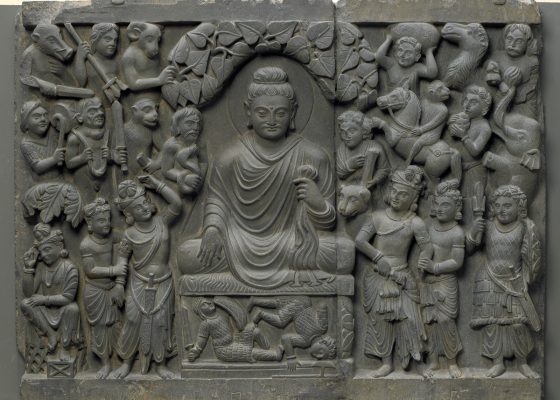
Enlightenment
Enlightenment, or awakening, in Buddhism is used to translate the Pali and Sanskrit term bodhi, which has its root in the meaning of to awaken and to know. It means direct insight into the fundamental truths of existence: the four noble truths, which are the truth of suffering, the origin of suffering, the cessation of suffering, and the path out of suffering, known as the eightfold path. Enlightenment, or awakening, is distinct from nirvana (Pali, nibbana), which is the extinguishing of suffering, as opposed to understanding the ultimate nature of reality.

A Sri Lankan Theravada monk on the interconnected factors that lead to awakening

The Nature of Concepts
Plato’s allegory of the cave as a metaphor for seeking nirvana

The Path to Awakening
Korean meditation master Daehaeng offers a concise teaching on reaching enlightenment in the midst of defilements

Remembering My Child
Grieving the death of her only son, a mother unexpectedly finds awakening.

Things as They Can Be
What happens in awakening

The Philosophy of No-Mind
Ineffable enlightenment experiences in the life and times of Ishida Baigan

Enlightenment Is Broadway
Stripping away the ritual and finding Zen at the checkout line

Translating Bodhi
A Theravada monk argues that “awakening” is the enlightened choice

In Defense of “Enlightenment”
“Awakening” has become the preferred English term for the Buddha’s attainment. But has something gotten lost in translation?

Get Daily Dharma in your email
Start your day with a fresh perspective

Explore timeless teachings through modern methods.
With Stephen Batchelor, Sharon Salzberg, Andrew Olendzki, and more
See Our Courses